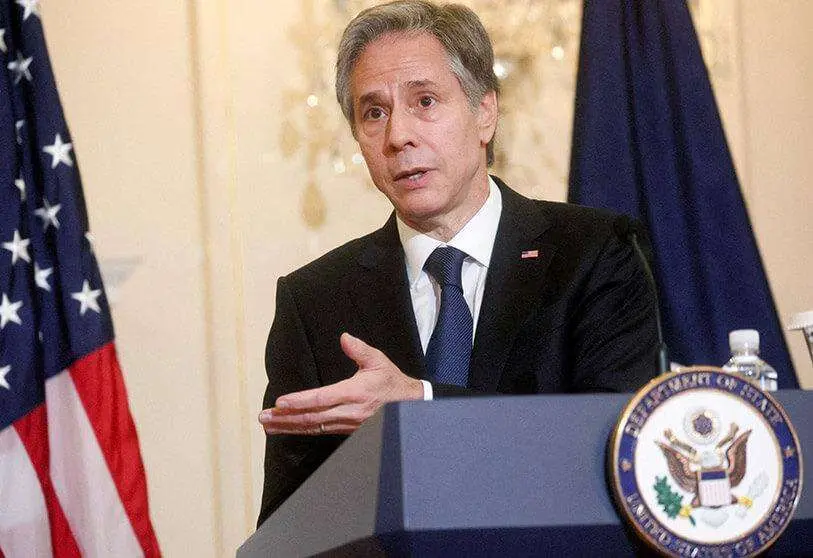New Iran sanctions make return to the Nuclear Deal more difficult

The United States has approved a new package of sanctions targeting Iranian oil after accusing it of "illicit" at a time when US-Iran talks on the nuclear programme are at a standstill.
In a new statement, Secretary of State Anthony Blinken said that "until Iran is ready to return to full implementation of the Nuclear Deal", the US will continue to "use sanctions authorities" to target "Iran's exports of oil, petroleum products and petrochemicals".

Washington explained that the new sanctions regime has targeted six oil companies accused of helping the Shiite country export oil to several Asian countries, thus circumventing the sanctions previously applied to Tehran by the United States.
According to the statement, the sanctions will be applied to "six entities that facilitate illicit transactions involving Iranian oil (...) key sources of revenue for Iran". Among the sanctioned companies are Pioneer Ship Management PTE LD, a company that Blinken accuses of managing "a liquefied petroleum gas tanker, acting as a commercial manager of a vessel carrying Iranian petroleum products".

Another sanctioned company is Golden Warrior Shipping, which is alleged to have engaged in "transactions involving Iranian oil and petroleum products, to include the provision of logistical support to the Iranian oil trade".
In addition, the US Treasury Department sanctioned four other entities that "support Iran's Persian Gulf Petrochemical Industry Commercial Co", which was already under US sanctions and which continues to "engage in the sale of Iranian petroleum and petrochemical products abroad".

These sanctions have been strongly criticised by Iran, which has vowed to "respond" to them. These new declarations by Tehran, which were prompted by the new US measure, come just a day after Iran expressed "optimism" about the resumption of talks on the return to the nuclear programme after examining a project proposed by the European Union that would be aimed at unblocking the current stalemate.
According to the head of European diplomacy, Josep Borrell, the European project is focused on bringing the parties closer together and urging them to reach a common point in order to avoid what he considers to be "a dangerous crisis". For the head of diplomacy, this project "is not a perfect agreement, but it addresses all the essential elements and includes the agreements reached with great effort on all sides".

In this sense, the spokesperson for the Iranian Foreign Ministry, Naser Kanani, defended the reactivation of the Agreement as the "logical and rational path", capable of achieving a "sustainable" pact. He said that Iran would "probably see a new round of negotiations. But this depends entirely on the will of the other side, especially the US side" and called on the US to demonstrate "in practice" its own willingness to revive the deal. However, these statements were made before Iran was aware of the implementation of the new sanctions, a situation that could now reverse the Iranian opening.
The agreement, signed in 2015, was abandoned by former US Republican president Donald Trump in 2018 after he described Iran as "the world's largest exporter of terrorism". The US exit was a turning point in the development of the US and US-Tehran diplomacy itself, which has only deteriorated since then.

The Joint Comprehensive Plan of Action (JCPOA) gave Iran some "relief" from the application of economic sanctions in exchange for Tehran curbing its nuclear programme and guaranteeing that it would not contribute to the development of atomic weapons. However, Iran did not keep its side of the bargain either, and the country's nuclear programme grew, leading to a certain amount of global mistrust. In addition, both Iran and the US have blamed each other for the failure of the negotiations and the escalation of tensions.
For the time being, the distances between the US and Iran continue to widen, blurring a political and diplomatic panorama that is not encouraging and, in Borrell's words, could lead to "a nuclear crisis". Meanwhile, Iran is getting closer and closer to developing a nuclear weapon and, although the Iranian government urges that "for the moment it has no intention of doing so", it also warns that "Iran has the technical capacity to build a nuclear bomb".
Americas Coordinator: José Antonio Sierra.








